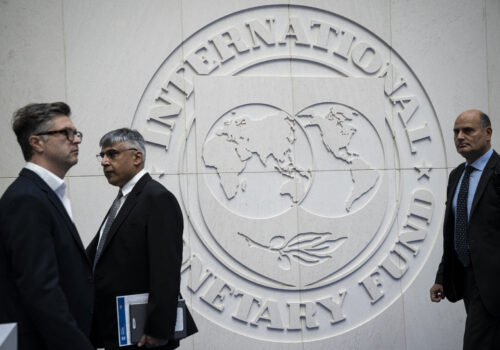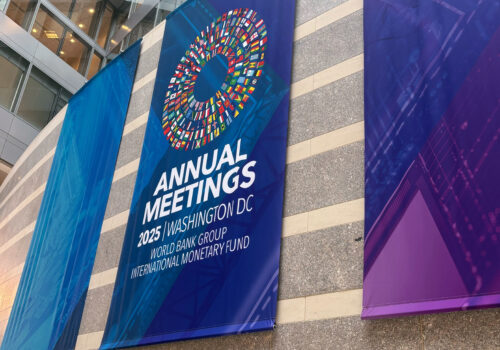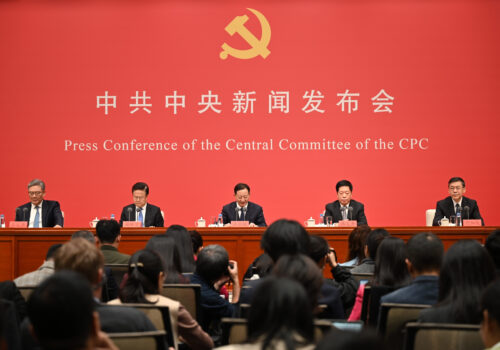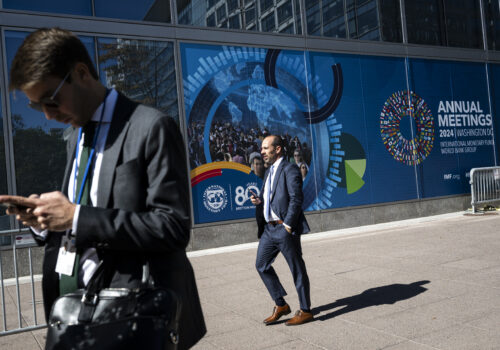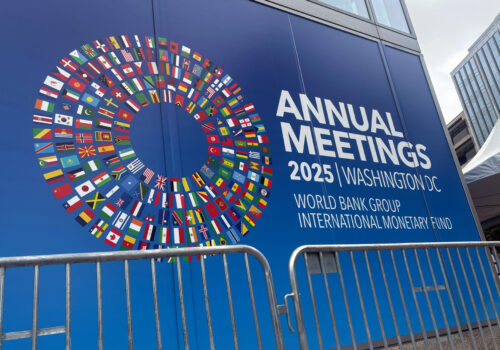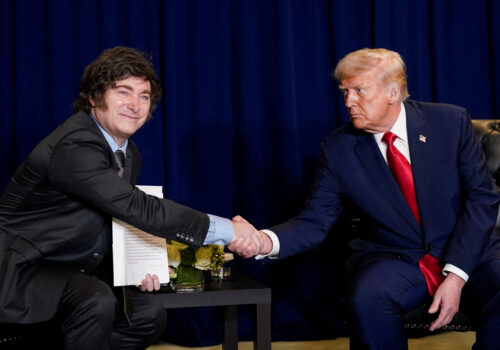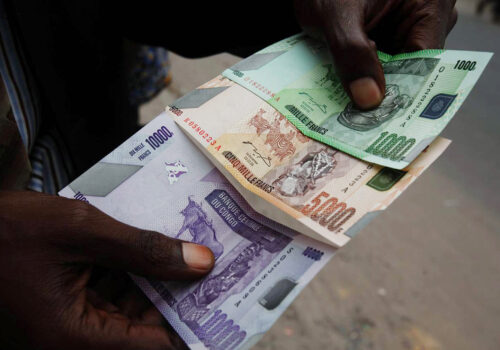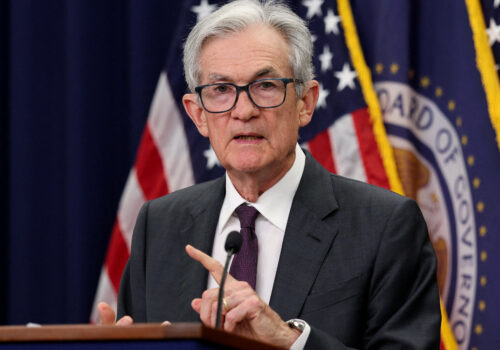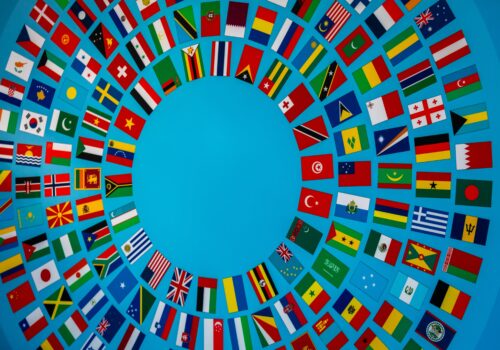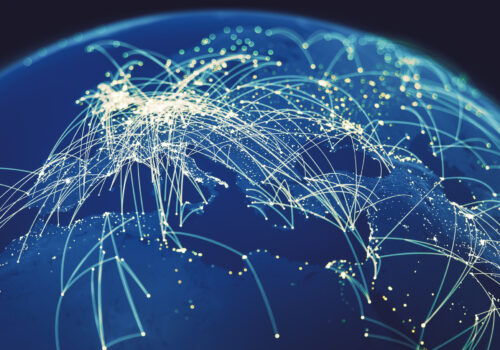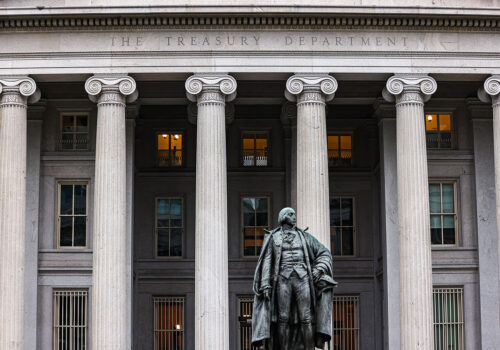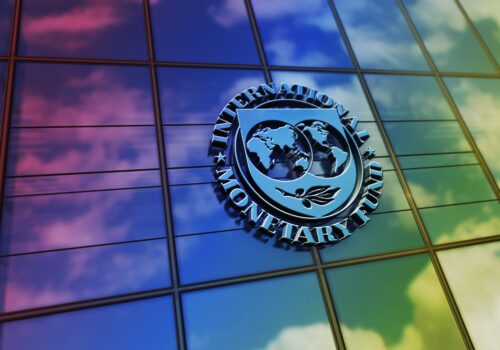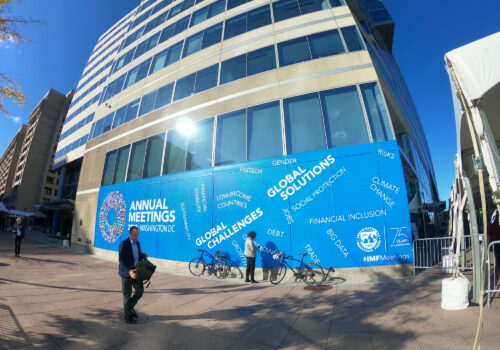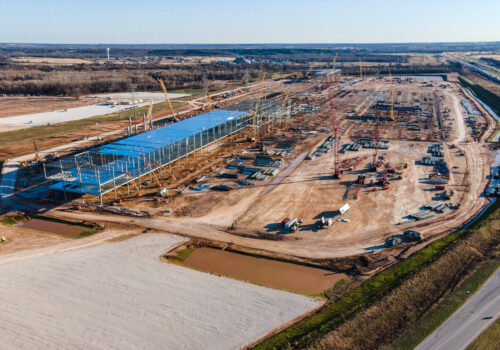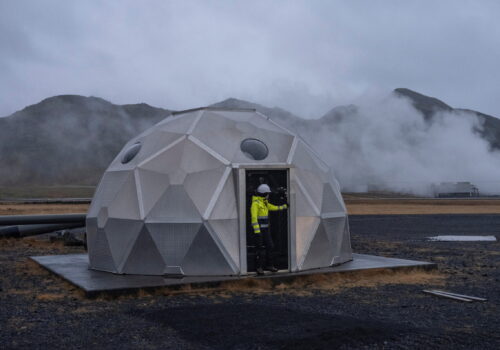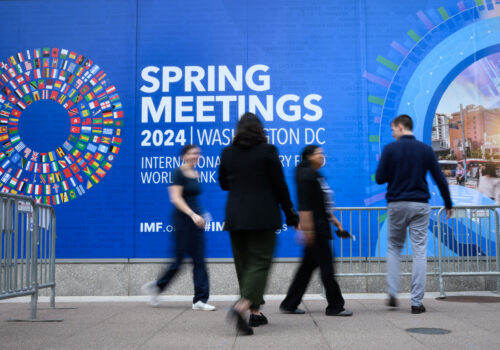What is the Bretton Woods 2.0 project?
The Bretton Woods Institutions were created in 1944 in the hopes that stronger international economic coordination would prevent another world war. Today, more than 80 years later, these institutions need to be revitalized and reimagined for a transformed global economy.
In an era of fierce geopolitical rivalries and unprecedented crises at a global scale, there is a profound need for reforms to the world’s monetary and financial system. But how exactly? What would a Bretton Woods system look like if it first emerged today?
IMF-World Bank Annual Meetings 2025
The Atlantic Council hosted a series of events from our headquarters and our studios inside the IMF and World Bank to get you up to speed on the global economy. These in-depth interviews brought together central bank governors, ministers of finance and development as well as leading econ experts from around the world.
2025 Annual Meetings Highlight Video
Events
Bank Briefings
Featured research
Highlights from previous IMF-World Bank meetings
Explore the program

At the intersection of economics, finance, and foreign policy, the GeoEconomics Center is a translation hub with the goal of helping shape a better global economic future.

